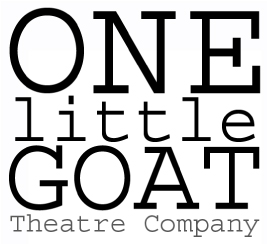BY JENNIFER PARR
Page 18-19 of the May 2018 issue (PDF link)
Rounding out the theatrical riches with which we were showered in April (see my regular Music Theatre column elsewhere in this issue), a difficult-to-label work called Betroffenheit returned to the Bluma Appel for the third time for a short run as part of an international tour. Based on the true story of playwright and performer Jonathan Young’s descent into addiction following the death of his daughter and her cousin in a cabin fire, the work is an extraordinary acclaimed (Canadian) physical production – a new marriage of play, dance and an unusual score directed and choreographed by Crystal Pite. I have never seen anything like it.
It overwhelms with its almost existential storytelling interspersed with exaggerated, almost too-frequently repeated literal moments of speech. The contrast between the circus-type atmosphere of the first act and the very bare essential quality of the second makes the piece work as a whole, along with the incredible talent of the performers.
Now, in stark and potentially illuminating contrast to Betroffenheit’s quality of powerful physical poetry, a new musical is coming into being in May, from One Little Goat Theatre. It’s a musical that puts theatrical primacy on the aural and poetic side of theatre, on sounds (words and music) and their reception rather than on the physical realization of the staging. I spoke with One Little Goat artistic director and show creator Adam Seelig to learn a bit more about the company, this concept and Music Music Life Death Music: An Absurdical, the new production.
WN: One Little Goat is described in your mission statement as the only North American theatre company dedicated to contemporary poetic theatre. Can you explain what you mean by poetic theatre and how that impacts the shows you create?
AS: I think of poetic theatre as “aural”; it’s about the words, the impact of the sounds. It is also not didactic, not showcasing one point of view or interpretation but is there for the audience to discover; like the plays of Beckett or Pinter, or earlier of Sophocles with Oedipus and Antigone.
Was creating a musical for you a logical extension of this focus on poetic theatre, particularly as you are both writer and composer?
Yes. For me creating theatre goes back to my love of music, the art form I loved first. I am always interested in the sounds. The creation of this play began with a love song for the middle-aged couple, the sandwich generation. The play grew from there.
Can you tell us more about the play itself?
This is a play (a comedy) with a lot of music involving three generations of family, their loves, their joys and their frustrations with each other. A family now, not really tied otherwise to a specific time or place or heritage.
The concept of poetic theatre would seem to perhaps indicate a specific style of movement as well. Is that the case with your production?
The aural quality is more important. The movement is something the cast will bring themselves. Once we come into the rehearsal hall the play will completely belong to them and they will be the ones to guide it and to show what kinds of qualities emerge based on who they are. We have a wonderful cast: Richard Harte (Boys in the Photograph) whom I have worked with for a decade; also Theresa Tova (Tough Jews, The Jazz Singer), Jennifer Villaverde (Soulpepper’s Animal Farm, Hana’s Suitcase) and Sierra Holder, who is graduating from Sheridan College the week before we start rehearsals.
Can you tell us more about the style of music and the band?
I would say the style is for the most part within the genre of rock and R&B. We are working with a handful of songs that are harddriving and also a handful that are anywhere from medium tempo to ballad. The band will be led by music director Tyler Emond who is also playing bass; then there is Lynette Gillis (of the band Overnight) on drums, Joshua Skye Engel (of the Allman Brothers tribute band Eat a Peach) on guitar and myself on a vintage Fender Rhodes electric piano.
Are you doing the arranging/orchestrating yourself?
That will be up to Tyler, but as we are a small band we will also have a few sections that are open to solos as well and a little room for improvisation. One of the things I love about going to hear a band is when it goes “off script” so we want to eke out a little bit of space for the band to breathe a little bit as well as playing for the songs.
Music Music Life Death Music plays from May 25 to June 10 at the Tarragon Theatre Extra Space, Toronto.
Toronto-based “lifelong theatre person” Jennifer (Jenny) Parr works as a director, fight director, stage manager and coach, and is equally crazy about movies and musicals.


